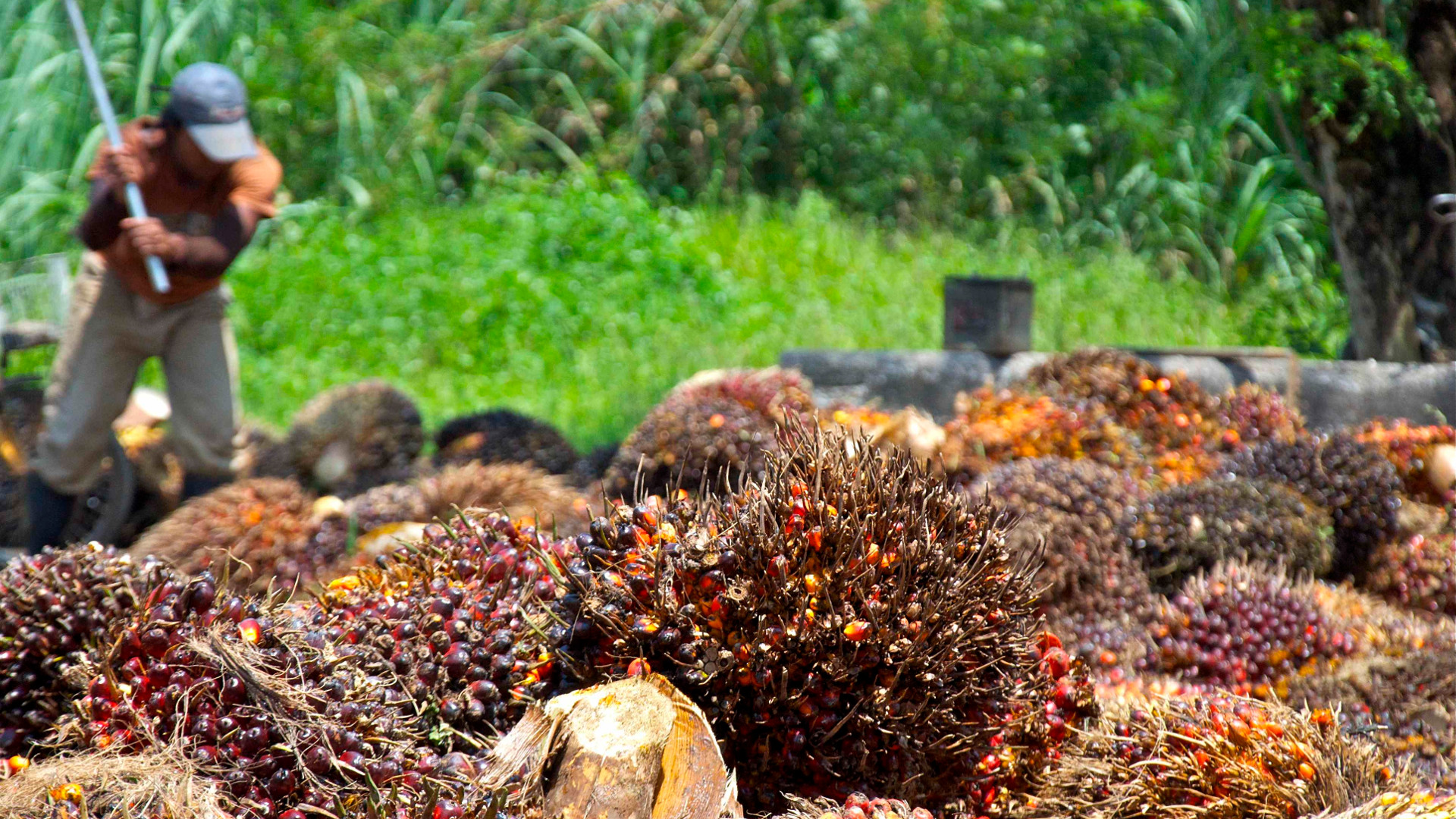Malaysia and Indonesia are massive producers of palm oil, much of which is exported overseas.
Oil palm is not only the biggest direct driver of deforestation and peat-swamp destruction in these nations but is a growing forest-killer elsewhere in the tropics — often in mega-diversity areas such as New Guinea, Equatorial Africa and Latin America.
Native forests and peat swamps in the tropics have remarkable biodiversity and are massive stores of carbon — the destruction of which spews out billions of tonnes of greenhouse-gas emissions each year.
Growers Love to Clear Native Forests
Those investing in oil palm love to find unoccupied, intact forests for their plantations. They don’t have to worry about local residents kicking up a fuss about losing their land, and the valuable timber in the forest can be used to help offset the costs of plantation production.
No wonder that vast areas of native forests are being mowed down or burned for oil palm plantations. As one example, in Terengganu state in Peninsular Malaysia, the government is about to allow a native forest reserve of 4,500 hectares (11,300 acres) to be destroyed for oil palm plantations.
The Malaysian Nature Society says that in just five years, from 2010 to 2015, more than 200,000 hectares (500,000 acres) of native forest has been cleared in Peninsular Malaysia, mostly for oil palm and exotic-rubber plantations.
Demand Set to Skyrocket
And now a new report by the respected Rainforest Foundation Norway suggests that oil palm could become a far bigger driver of deforestation in places like Indonesia and Malaysia.
This is because the global demand for oil palm is expected to grow six-fold by the year 2030, thanks to its rising use to create transport fuel, which is being spurred in part by alarming policy changes in China, Indonesia and the aviation sector.
And this is despite clear evidence that oil palm is one of the worst feed-stocks for producing biodiesel because of the exceptionally high environmental costs — to biodiversity and our climate — as well as to local landowners displaced by the big plantation companies.
Backlash Ahead?
It’s for this reason that the European Union is planning to completely phase out imports of oil palm from Indonesia and Malaysia for biofuel production, as of 2021 — a move that is causing both producer nations to howl in protest.
This kind of backlash has been a long time coming — and let’s hope that pending counter-moves by China and Indonesia don’t offset the courageous E.U. ban.
Originally published by Alert-Conservation. Reprinted with permission.


